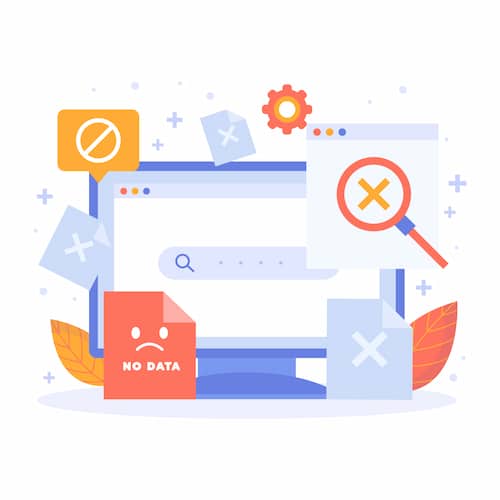How will Google refine its search rankings this year? The Google March 2025 core algorithm update addresses this, targeting “unhelpful and unoriginal” website content to combat spam and improve search quality.
Make sure yours doesn’t end up in that stack. Understanding and adapting to Google’s new policies is paramount for maintaining visibility. Otherwise, you risk obscurity online. This blog explores how Google’s latest algorithm update clears the path for quality content to shine, as well as SEO strategies for staying relevant.
The March 2025 Core Update

When people turn to search, they expect the finest content the web has to offer. With this in mind, Google’s latest algorithm update focuses on two primary goals: improving quality rankings and enhancing spam policies. It focuses on improving search quality by picking useful content over clickbait.
When evaluating websites, Google analyzes multiple core systems, including content quality, domain expirations, user engagement metrics, and semantic analysis. Ranking fluctuations may occur during the March 2025 Google algorithm update’s rollout period; if you notice a drop in your metrics during this transition, don’t panic. Focus on creating people-first content while carefully monitoring your site’s performance.
Crucially, always stay informed and adapt your SEO strategies with Google’s updates to ensure continued success in the search rankings. Let’s further discuss the details of the latest core update below.
New Spam Policies
Anti-spam policies have always existed in Google’s evaluation process. These guidelines were refined in the March 2025 Google algorithm update to tighten the screening of suspicious, low-quality content with a more targeted approach. These policies include preventing repurposed expired websites, automated content, and irrelevant third-party content on reputable platforms.
Let’s talk about Google’s three new spam policies: expired domain abuse, scaled content abuse, and site reputation abuse.
Expired Domain Abuse

Expired domain abuse involves buying an expired website and posting new material irrelevant to the original site’s purpose to leverage its residual authority. Google considers this misleading and potentially harmful.
For example, a reputable renewable energy news website expires, and someone with malicious intent buys it. Instead of publishing content related to renewable energy, the new website owner advertises questionable skincare products. This demonstrates the manipulation of search ranking, benefitting from the website’s past authority and backlink profile for personal gain.
Knowing the difference between legitimate usage of old domains and intentional manipulation of search rankings is essential. Here are a few examples.
| Fair Domain Use | Intentional Domain Manipulation |
| Providing educational, interactive, and personalized information or services | Adopting the branding of a reputable source while spreading inaccurate information |
| Maintaining consistent brand messaging, transparent pricing, and timely customer service | Engaging in deceptive practices like keyword stuffing, fake reviews, and clickbait |
| Organic improvement based on user engagement metrics like high ratings, organic backlinks, frequent site visits, and more | Boosting search ranking artificially using link farms, private blog networks, doorway pages, and more |
Scaled Content Abuse
Scaled content abuse involves producing large volumes of low-quality content across multiple web pages to manipulate search rankings. Initially, Google focused on targeting content with clear automation involved. This time, it also assesses whether the content is pure automation, humans, or a combination of both.
Does the policy imply penalties for AI-generated content? Not exactly. There are ways to use AI to create high-quality content. The key is ensuring your pages successfully deliver helpful and genuine information.
Site Reputation Abuse

Site reputation abuse involves posting irrelevant third-party content on an established website to manipulate its good reputation. Google will now label websites as spam if they lack editorial monitoring, which enables the publication of misleading content to manipulate search rankings.
For instance, a user goes to a well-respected health and wellness website to seek tips about weight loss. When searching for “weight loss” on the site, they come across an article from a third-party contributor promoting a questionable supplement. It lacks depth and scientific evidence but still appears legitimate due to the website’s reputation, misleading the user.
Discerning acceptable and manipulative third-party content on a website is crucial. Here’s a short list of questions to help you assess third-party content.
- Does the content provide relevant supplementary information?
- Does the content disclose its sources, and are these sources reputable?
- Does the content make the browsing experience easier for the site visitors?
- Does the content present expert and transparent information to help strengthen the confidence users have in the platform?
How to Refine SEO Strategies in the Aftermath of Algorithm Updates
Powering through the previous algorithm changes doesn’t make you immune to Google’s March 2025 core algorithm update. You might still get penalties, so continue optimizing content and understand what’s causing any issues.
Consider these post-update SEO strategies to minimize the risk of violations.
Emphasize Originality, Depth, and Value
Google has consistently prioritized unique, in-depth, and valuable content to provide users with helpful information. Websites deviating from these standards by producing thin or duplicated content undermine Google’s ability to meet its objective. This may result in potential penalties, including deindexing and removal from the search results.
To support this objective, Google introduced the concept of E-E-A-T (previously E-A-T) as part of its Search Quality Evaluator Guidelines, emphasizing credibility for search engines and readers. The acronym stands for
- experience,
- expertise,
- authoritativeness, and
- trustworthiness.
But how exactly can you live up to these standards?
Experience

Google determines whether or not content comes from first-hand experience. A web page appears more reliable when created by people with a significant background in the subject matter.
Here are specific examples to demonstrate experience in content creation.
- Showcase genuine and specific product or service reviews. Only 11% of consumers trust brand messaging over what they hear from others, so testimonials are highly significant.
- Introduce the team behind your organization. Provide a page displaying your team members’ profiles and detailing their roles and processes.
Expertise
You develop expertise after gaining first-hand experience over time. This means you have the necessary skills and knowledge to tackle a specific topic, which Google considers when assessing content quality.
To demonstrate expertise in your content, consider the following practices:
- Cite reputable sources.
- Provide author credentials.
- Offer practical solutions to complex problems.
- Foster engagement through comments, forums, or social media channels.
- Implement a person schema.
Authoritativeness

What makes a website stand out in a sea of competitors? It’s authority. It implies that you have the experience and expertise to have people relying on your content for information or purchases.
Here are a few ways you can demonstrate authoritativeness in Google searches.
- Establish a consistent, solid content structure.
- Consistently publish high-quality content and earn backlinks from reputable sites.
- Create a digital profile tailored to your expertise in a particular subject.
Trustworthiness
Google considers trust to be the most critical component of E-E-A-T. It doesn’t matter how experienced, expert, or authoritative a piece of content may seem if it’s deemed untrustworthy. For example, a well-written article by an anonymous blogger offers medical advice. Despite its quality, Google will likely lower its rank due to concerns about the writer’s trustworthiness.
Consider the following to exercise trust in content creation:
- Provide clear information about your organization, such as contact details and the people behind your content.
- Implement secure payment systems and reliable customer service.
- Ensure accurate information across all platforms to prevent harm.
Remember: Improving E-E-A-T cannot be done overnight. Plan your content strategy carefully to guarantee success.
Focus on User Experience
The Google March 2025 algorithm update reflects the search engine’s focus on enhancing user experience. Google’s ranking systems reward content that contains visually appealing and intuitive layouts, making the experience easier and more engaging for users.
The challenge arises when web owners don’t consider UX design principles and focus solely on keyword optimization. This approach can lead to decreased engagement, missed opportunities for innovation, and lack of relevance. Eventually, they’ll risk falling in search rankings or being removed altogether.
Consider these tips to avoid getting on Google’s wrong side.

- Design user-friendly pages. Make the user journey simple. Users should not have to click multiple links to reach their destination.
- Optimize page speed. Don’t let your visitors wait. Ensure your website loads faster by compressing images, caching pages, improving server response times, and using tools like Google PageSpeed Insights to address any issues.
- Enhance mobile responsiveness. Statista forecasts mobile users worldwide to grow to 7.49 billion by 2025. Stay ahead of the competition by implementing touch-friendly features and creating accelerated mobile pages.
- Include clear calls to action (CTAs). Keep your website CTA concise and action-oriented to guide users on what to do next. Use contrasting colors to make it easily clickable and visible.
These practices help keep users on your site longer, sending positive SEO signals to search engines.
Quality Over Quantity Is Marketing Done Right
While the Google March 2025 core algorithm update requires changes for search engine optimization, it also emphasizes optimizing for people. Google prioritizes high-quality content in search rankings, while websites engaging in expired domain use, scaled content production, or site reputation abuse are considered spam and eventually lose visibility.
Therefore, understanding Google’s updated policies and refining your SEO approach is crucial for preserving and boosting your online presence. These changes may pose hurdles, but view them as opportunities to create more valuable content for your target audience.
Most importantly, you can significantly contribute to a better online environment for all users, establishing trust and reliability in the digital realm.
Ready for effective search optimization? Seek assistance from reputable SEO agencies like Marketing Done Right. We’re a team of marketers well-versed in delivering authentic and reliable services.
Contact MDR today to learn more about our digital marketing services and get the professional help you need.